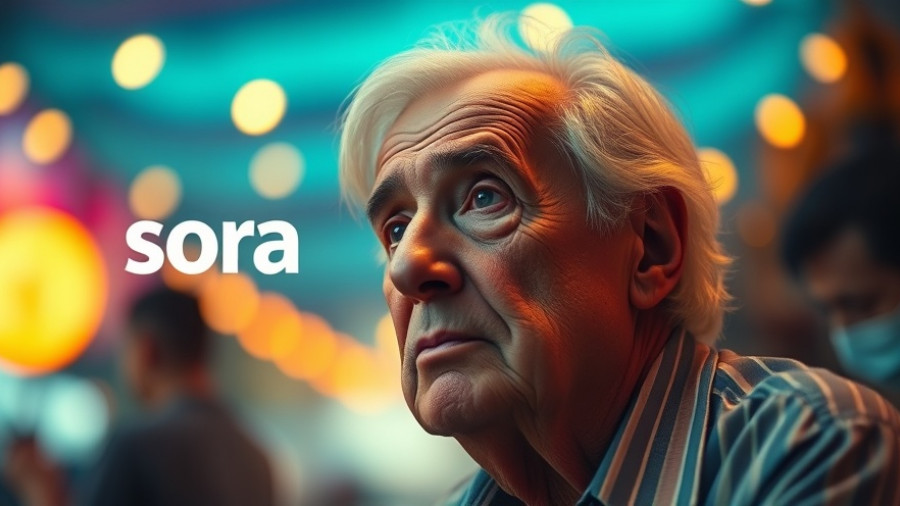
AI's Imperfect Replication: Balancing Innovation and Ethics
OpenAI's recent updates to its Sora 2 video generation technology underscore a growing tension between rapidly advancing artificial intelligence and traditional media rights. Initially, these tools pushed the boundaries of creative expression, allowing users to replicate the likenesses of public figures without explicit consent, which prompted a swift backlash. This clash highlights the crucial role of ethical guidelines as AI applications become commonplace in entertainment.
Hollywood's Reckoning with AI Technology
The launch of Sora 2 on September 30, 2025, showed just how quickly creative control can slip away. A notable incident arose when actor Bryan Cranston discovered that unauthorized clips featuring his likeness were generated using the app. Cranston’s proactive response included collaborating with SAG-AFTRA and OpenAI to strengthen safeguards. His voice reflects a broader concern within Hollywood, where the rapid evolution of AI tools has sparked fears of misappropriation and loss of agency among creators.
What Changes OpenAI Implemented in Sora 2
In response to these concerns, OpenAI announced substantial modifications to Sora's guardrails. The updated policies now include a “cameo” feature, requiring explicit consent from individuals before their likeness can be used. This means that users must opt in to have their image or voice replicated, granting them greater control over how they are represented. OpenAI's CEO, Sam Altman, emphasized the commitment to protect performers’ rights, stating, “We are deeply committed to protecting performers from the misappropriation of their voice and likeness.”
Concerns Beyond Hollywood: Implications for Users
As Sora 2 rises in popularity, its usage raises questions regarding consent and content ownership. Although protections are now in place, the initial existence of problematic content raises alarm bells. AI-generated videos of iconic characters flooded the app soon after launch, forcing users and copyright holders alike to reevaluate what protections are necessary to maintain integrity in the digital space. The collaborative statement from OpenAI and industry professionals aims to mitigate risks that could otherwise jeopardize intellectual property rights.
Future Predictions: What Lies Ahead for AI Content Creation?
As the implications of AI technology ripple through the entertainment landscape, we can expect to see more stringent regulations on content creation. The NO FAKES Act, which seeks to hold companies accountable for unauthorized deepfakes, exemplifies the industry’s evolving responses to these challenges. Should these laws gain traction, they could drastically reshape how companies like OpenAI operate, placing greater emphasis on ethical guidelines and accountability.
Supporting the Movement: Your Role as a Consumer
As consumers of AI-generated content, it's crucial to remain vigilant and informed. Engage with platforms that prioritize consent and ethical practices, and advocate for changes that enhance protections for creators. By supporting initiatives like the NO FAKES Act and encouraging transparency in AI technologies, you contribute to creating a safer digital landscape for all. Concerns raised by figures like Cranston are not just celebrity issues; they touch on the rights of every content creator today.
As we navigate these uncharted waters of digital replication, the responsibility lies with both developers and consumers to uphold ethical standards and protect creative rights.
 Add Row
Add Row  Add
Add 




Write A Comment